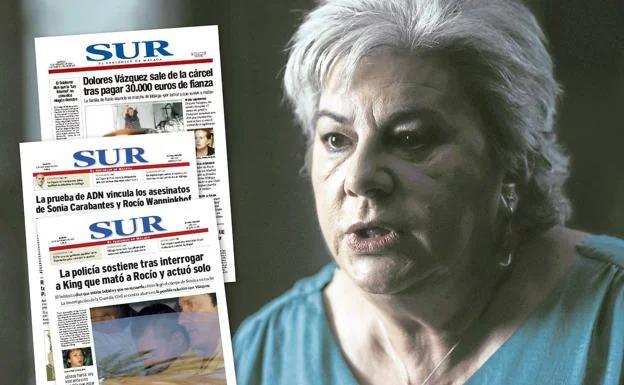Wrongly convicted woman speaks out 25 years after Wanninkhof murder on Costa del Sol: 'I need the government to apologise to me'
Dolores Vázquez spent 519 days behind bars for a crime actually committed by British man Tony King
Wednesday, 9 April 2025
Dolores Vázquez, unjustly convicted of the murder of her ex-partner’s daughter Rocío Wanninkhof in Mijas in 1999, was honoured by her hometown, Betanzos, during the celebration of the Úrsula Meléndez de Texeda awards. The prize, which recognises the works of women and their contributions to society, is a symbol of the solidarity of Dolores’s neighbours and fellow citizens. However, Dolores used the opportunity to express her undying wish to receive an apology from the Spanish government for the unjust conviction and the relentless media trial that she was subjected to before being absolved in 2002.
"In my heart, I need the government to apologise to me. This is my town and it is not the same - it is my people, those who have lived with me for seven years and know me. Today is special and I know that I will not have another opportunity like this, but it is not enough," she said.
In September 2000, Dolores Vázquez was arrested as the main suspect in the Mijas murder of 19-year-old Rocío Wanninkhof, the daughter of her estranged ex-partner, despite lack of solid evidence. Rocío’s disappearance in 1999 sparked one of the most high-profile media circuses in Spanish history. She spent 519 days behind bars for a crime actually committed by British man Tony King.
'Today is special and I know that I will not have another opportunity like this, but it is not enough'
She was released after serving 519 days in prison after an appeal overturned the conviction due to insufficient evidence.The investigation of Sonia Carabantes’s murder in August 2003, found DNA evidence linking Tony Alexander King to both cases. The British citizen was arrested, solidifying Dolores’s innocence.
The consequences of the trial, the 17 months spent in prison and the media attention caused Dolores to move to the UK, without having been compensated. In 2008, the Ministry of Justice recognised the error and proposed compensation of 120,000 euros - well short of the four million demanded by Vázquez.
'I don't hold grudges against anyone'
The auditorium during the commemorative act was full of Betanzos residents and municipal figures. The mayor of Betanzos, María Barral, apologised to Dolores Vázquez on behalf of the municipality and acknowledged her as a victim of a "terribly unfair" society.
Barral also accused Spain’s government for not being by Dolores’s side and apologised "for every unfair look, for every doubt, for every personal and global condemnation, for every nudge and for every gesture of abandonment".
"It is a special day, because we are here to do something we should have done a long time ago: to recognise, honour and, above all, apologise to a woman who suffered one of the greatest injustices of our recent history. You were the victim of a society that, instead of protecting you, singled you out, and of a system that condemned you without evidence, without reason and without humanity," the mayor said.
'I don't hold a grudge against anyone, because feeling bad and not being true to yourself only makes you become bitter inside'
Visibly moved by the speech and the applause of a standing audience, Dolores admitted that she cried when she received the news that she was going to be honoured by the town hall of her hometown, where she feels "included, free and loved".
She added that she "had not expected to see so many people" at the ceremony, hoping that this would be an opportunity for other cities in Spain to "recognise the mistake". Dolores stated that she would always receive an apology with an open heart.
"I don't hold a grudge against anyone, because feeling bad and not being true to yourself only makes you become bitter inside. I will always go forward and whatever they give me will be well received," said Dolores.
